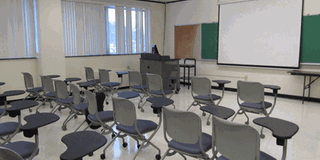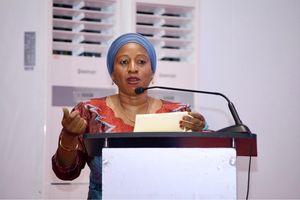TCU blacklists 8,000

What you need to know:
The Tanzania Commission for Universities (TCU) has released a list comprising over 8,000 continuing students from 52 higher learning institutions who it says don’t meet admission criteria.
Dar es Salaam. More than 8,000 university students might be forced out after their entry qualifications were questioned.
The Tanzania Commission for Universities (TCU) has released a list comprising over 8,000 continuing students from 52 higher learning institutions who it says don’t meet admission criteria.
TCU posted on its website the names of the affected students, some of whom are shown to have sat their Form Six national exams in the 1990s. The notice directs the named students to consult respective universities on their fate.
The move is likely to send panic to universities, with St John’s University of Tanzania (SJUT) last evening asking its students to remain calm over the TCU notice.
The panic was also evident on social media platforms as users frantically sought to know the implication of the TCU unprecedented move.
SJUT which has the second highest number in the list with 968 students, indicated that the management was working on the matter.
“This is an administrative matter that should not be of any concern to students who are properly admitted to SJUT. You are therefore requested to remain calm and concentrate on preparing for your examinations while we sort out this issue,” said the university’s Deputy Vice Chancellor (Academics), Prof Casmir Rubagumya. The TCU said it released the names following a thorough review of academic qualifications of students in higher learning institutions.
The list was published in the TCU website (www.tcu.go.tz), with the note that those whose names have appeared have until February 28 to prove otherwise or risk being deregistered. The list also includes foreign students.
The Saint Augustine University of Tanzania (SAUT), Mwanza campus, tops the list with 1,046 students, followed by the SJUT with 968.
Other institutions are State University of Zanzibar (SUZA) 966, Mzumbe (639), Abdurrahman Al-Sumait Memorial University –(SUMAIT in Zanzibar) (552), University of Iringa (UoI) (522), the Institute of Rural Development Planning (IRDP), (431) College of Business Education (CBE), Dodoma Campus, with (375), Institute of Finance Management (IFM) (305) and the University of Dar es Salaam which has 224 students.
The top five universities
SAUT, SJUT, SUZA, Mzumbe and SMAIT—
occupy 49 per cent of all affected students, while the entire top ten makes the 70 per cent of the affected.
The TCU director of Admissions and Documentation, Dr Kokuberwa Mollel, said the exercise would further be carried out in 30 other universities, saying those in the list have to clear with their institutions within the given time.
“We have done our part, the rest should be executed at the universities, before sending us feedback,” she said, adding that further details would be obtained at the end of the exercise.
“There are over 80 higher learning institutions and the exercise covered only 52, so people should wait until we are done with them all,” she explained.She further advised higher learning students and other stakeholders to keep in touch with the TCU website for further updates pertaining to the exercise.
In May last year, the Minister for Education Science and, Prof Joyce Ndalichako, announced the expulsion of 7,802 students of the University of Dodoma (UDOM) who were discovered to lack the prerequisite qualifications. The students were pursuing special diploma courses in Science and Mathematics with the express purpose of alleviating the shortage of Science and Maths teachers in public schools.
However, some 6,595 expellees were later on posted to teacher training colleges while 269 others went to various vocational training institutions.
Again, the move was extended to the SJUT which kicked out 489 students, after it was established that they were enrolled despite the fact that they had failed their secondary education examinations.
Prof Ndalichako has been repeatedly quoted saying that, the fifth phase government is determined to raise standards in the country’s higher education system.




